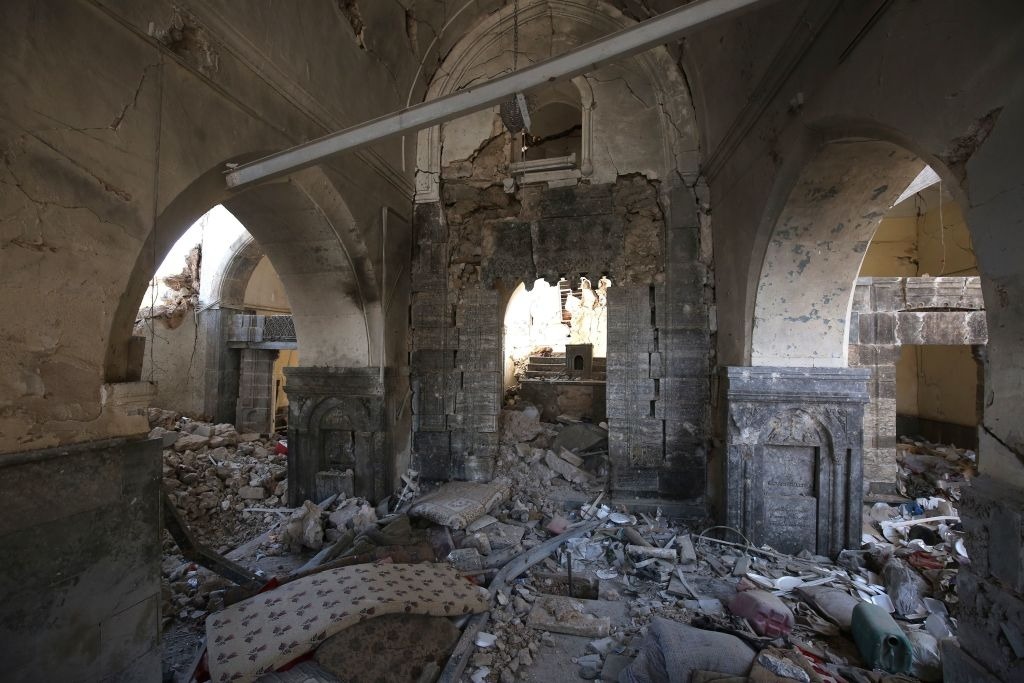A picture shows a general view of the destruction inside a church in the Old City of Mosul on March 13, 2018, eight months after Iraqi forces liberated the city from the control of the Islamic State (IS) group fighters. / AFP PHOTO / AHMAD AL-RUBAYE (Photo credit should read AHMAD AL-RUBAYE/AFP via Getty Images) يوم أسود لنزوح المسيحيين العراقيين بعد عقد من مآساتهم ريموند إبراهيم/معهد جيتستون/20 أغسطس/آب 2024 (ترجمة من الإنكليزية بواسطة موقع غوغل)
‘The Black Day’: A Decade of Displacement for Iraqi Christians Raymond Ibrahim/Gatestone Institute/August 20, 2024
يوم أسود لنزوح المسيحيين العراقيين بعد عقد من مآساتهم ريموند إبراهيم/معهد جيتستون/20 أغسطس/آب 2024 (ترجمة من الإنكليزية بواسطة موقع غوغل)


